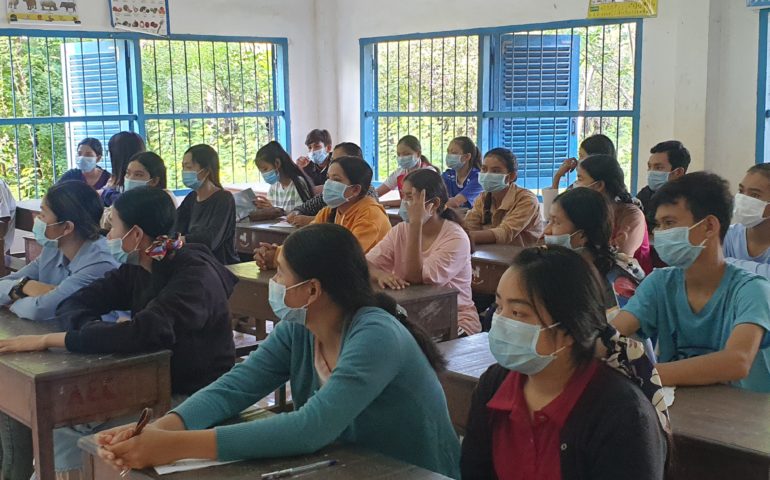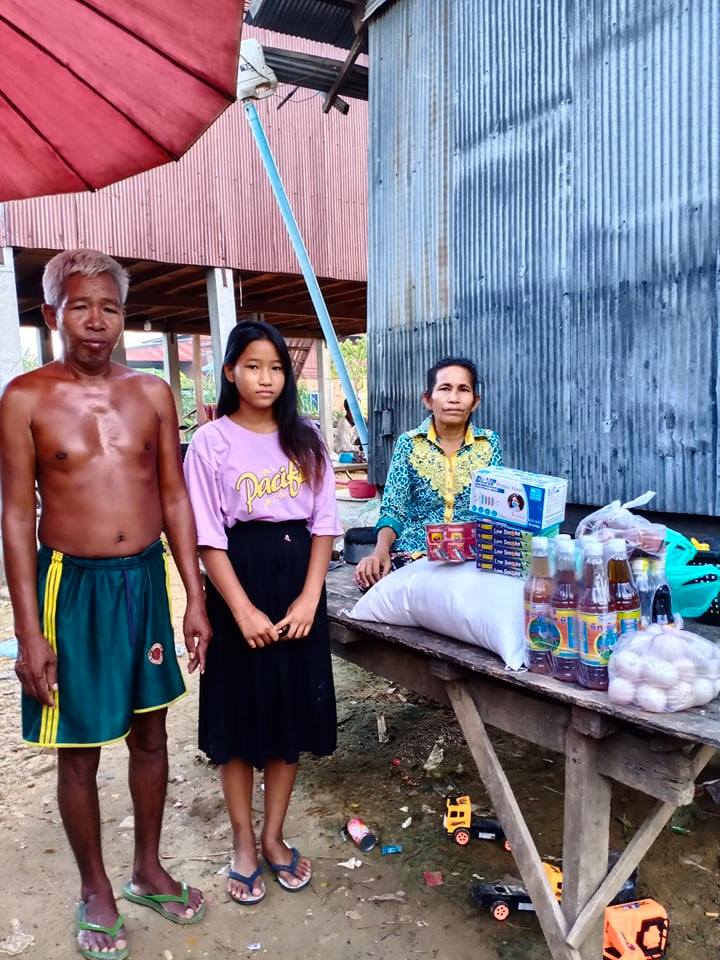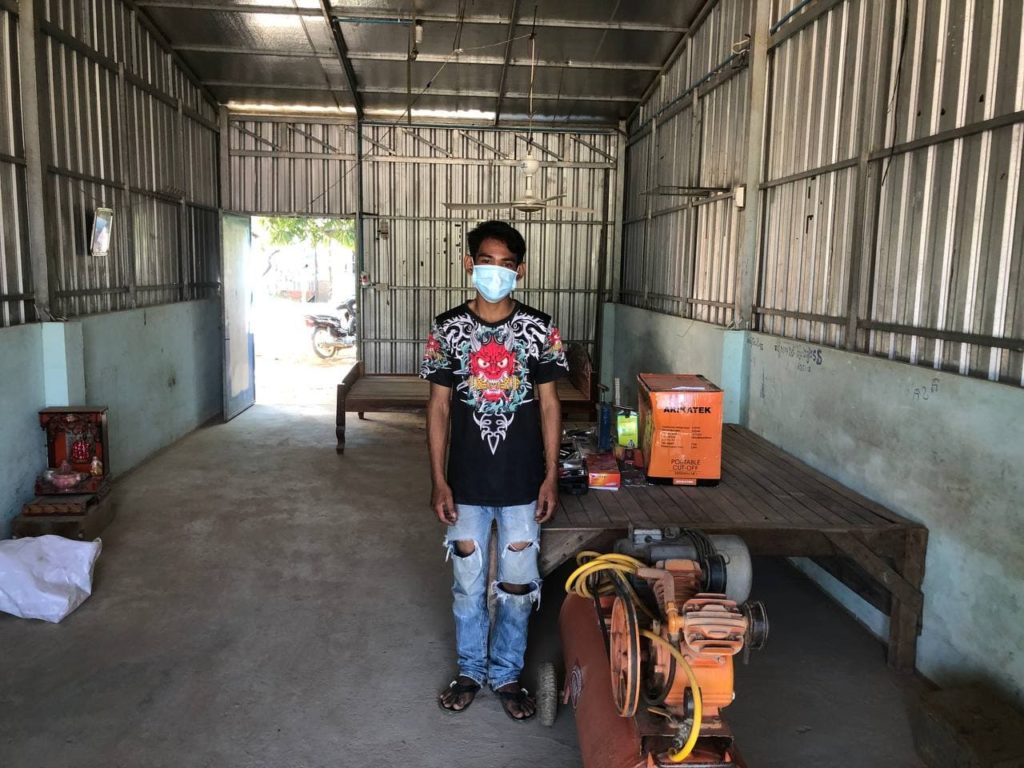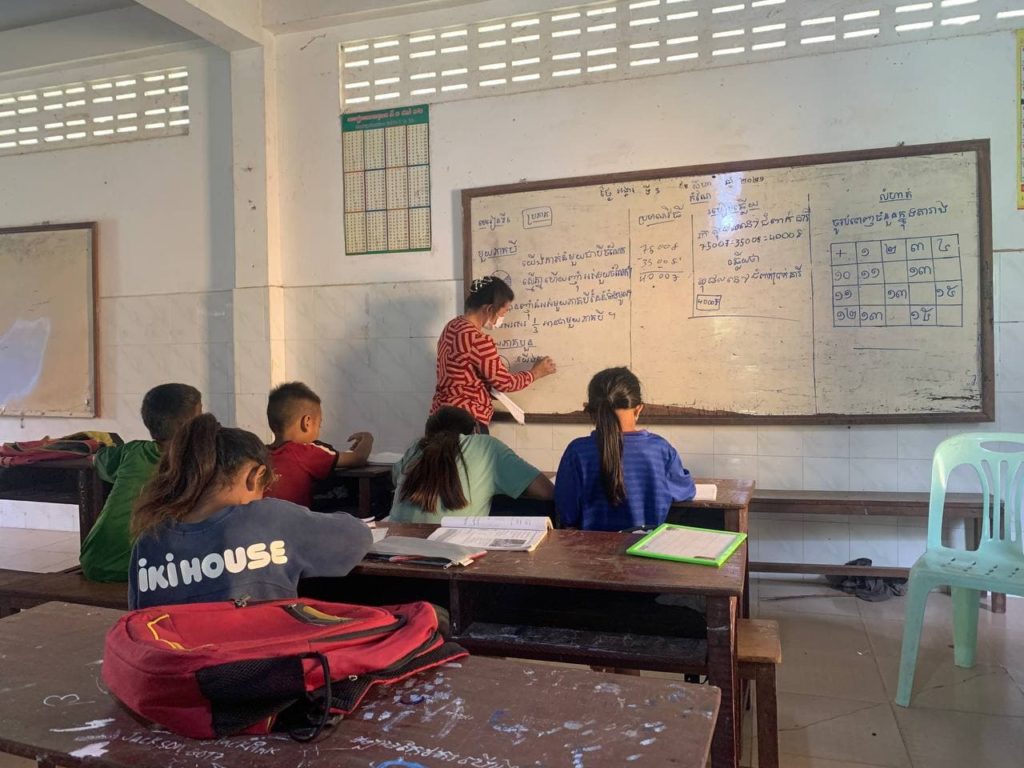
Since the start of the Covid-19 pandemic, the Cambodian government has put in place strong measures to prevent the spread of the virus. This method was initially effective since Cambodia had a very low number of cases. However, the situation deteriorated in early 2021 with a sharp increase in contamination. Curfews, lockdown, closure of provinces, closure of stores and restaurants, etc., have been going on for several months. The borders have been closed for a year and a half now and tourist visas are no longer issued. The schools closed their doors in March 2020. This has changed the daily lives of many children, with little or no access to distance learning. While the new school year “2020-2021” had started with the reopening of schools in January 2021, the discovery of new clusters led to a new closure across the country in March 2021 (until today).
Recently, measures have been taken more locally, by province. Banteay Meanchey is one of the most affected provinces at the moment. It is classified in the red zone, with certain areas and markets regularly closed and a curfew from 9 p.m. to 3 a.m. The government plans to gradually reopen schools, in reduced capacity. This, only in low-infected areas, which is still far from the case in our province.
The government of Cambodia launched its national vaccination campaign on February 10, 2021, mainly using 2 Chinese vaccines (sinovac and sinopharm). Almost 70% of the population is now fully vaccinated. This is one of the highest percentages of Covid-19 vaccination among the adult population in the WHO Western Pacific Region (UN, 2021). Currently, it is the children who are starting to be vaccinated.
The pandemic has put immense pressure on the country’s public health system. It caused an economic contraction of around 3.1% in 2020, mainly affecting the clothing, footwear, and tourism sectors.
The consequences of the decline in economic activity linked to Covid-19 are numerous: lower wages, job suspensions, layoffs, increase in the poverty rate and debt levels, etc. Particularly in Banteay Meanchey province, Cambodian migrant workers in Thailand have also faced job suspensions and reduced working hours. Many were eventually forced to return to their countries of origin.
The border closures had an indirect impact on farmers. Many of them depend on daily wage activities to support themselves during the off-season. The closure of the border created a surplus of labor within the country. This then put downward pressure on daily wages. Informal workers such as tuk-tuk drivers and souvenir vendors have also lost much of their income (-90%) due to the collapse in tourism.
The Covid-19 pandemic has resulted in the closure of schools in Cambodia, affecting more than 3 million children across the country. Distance education has many obstacles: over 80% of students said they had no TV at home, no smartphone or tablet, and insufficient internet bandwidth. The high cost of equipment and connectivity, as well as the low level of digital literacy, are other constraints excluding a large part of the children from education.
According to UN agencies, shutting down schools for long periods of time can have devastating consequences for children. They become more exposed to physical and emotional abuse and their mental health is affected. They are more vulnerable to child labor and sexual abuse and are less likely to break out of the cycle of poverty. The longer children stay out of school, the less likely they are to return. (UNICEF, 2020)
The scale of the crisis, therefore, threatens to wipe out years of progress and deprive the most vulnerable of essential services in education, child protection, health, nutrition, and water. This impact could then affect generations.
Since March 2021, our children and their families have been severely affected by the consequences of the epidemic resumption. The impact on families is terrible. The small activities with daily income that they carry out for a living are now at a standstill. Many lost all their sources of income.
The children living at the Foyer had to return to their families in April when schools were announced to be closed. They received financial assistance for transportation and food throughout their stay at home. All of them were closely monitored by program managers. They made sure that their family situation allowed them to be at home in good conditions. Middle school and high school students also received an internet package allowing them to follow the courses remotely. They all quickly returned to the Foyer, so that they could take the courses online using the computers of the computer room and those available in the art room, which has been redesigned for studying. Two teachers have been mobilized for primary school children, to support them in their learning and to avoid dropping out. Distance support courses have been gradually set up for middle and high school students with difficulties.
For the children supported in their families, the program manager, Sophea, had to make many adjustments. She has thus set up a new distance study schedule to keep in touch with the children, maintain school dynamics, and prevent dropping out. Monthly distributions continue with respect for social distancing. The aim is to ensure that children have access to decent living conditions (food, hygiene, etc.) as well as distance education (internet package). Certain specific donations have been added to help families in very precarious situations. The whole team has been in regular contact by phone with the children since the schools closed. In addition to following distance education, the aim is to reassure each child. They need to know that they matter and that the team continues to think and care about them, even from afar.
For students too, the situation has changed a lot. With the universities closed, most of them have returned to their families. They also had the opportunity to stay in the shared flat in Phnom Penh or to come to live in the Foyer to have access to computer equipment. The monitoring of the program manager has been accentuated remotely, to ensure the continuity of classes and decent living conditions. Additional aid has been put in place to cover food costs and other unforeseen expenses.
This program was the least impacted by the Covid-19 health crisis. Despite the restrictions, most stores were able to remain open or only closed for short periods. Most of the apprentices were therefore able to continue their training. In some cases, stores have agreed to increase the length of apprenticeship to compensate the periods of closure. Others have implemented a video system for distance learning. However, the applications for the entrepreneurship scholarship have declined. Starting your own activity in a very unstable economic context is indeed very complex.


